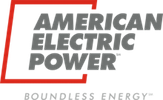AEP Warns Against D-I-Y Tree Trimming Projects
With spring comes home improvement projects, and perhaps one of them is having a tree trimmed. While trees add beauty to your yard and landscaping, they can cause power outages, property damage and serious injuries.
Tree limbs that fall into power lines are a major cause of power outages. AEP regularly trims trees that are near power lines to keep electricity flowing to homes and businesses.
Since tree branches can become conductors of electricity, customers should never attempt to trim trees that are near power lines, including the service drop (the power line from the utility pole to your home). Call your local power company to have any trees near power lines trimmed.
When should you attempt to trim a tree yourself? Just about never. Consider that a full-grown tree may weigh several tons, and a single limb may weigh hundreds of pounds. In the vast majority of cases, you should call a professional.
Tree trimming is extremely hazardous. Hazards include injuries from falls, injuries from power equipment such as chainsaws, puncture and crushing injuries from falling trees or tree limbs, and shocks from electrical contact.
If you do trim small, low-growing trees or high-growing shrubs around your home, follow these safety recommendations:
- Never start a trimming job alone; have a spotter nearby.
- Do not trim in windy, stormy, wet, or otherwise dangerous weather conditions.
- Perform a hazard assessment of the work area before starting work.
- Eliminate or minimize exposure to hazards at the work area and in the surrounding area.
- Make sure you are trained to use a chainsaw and other equipment and the equipment is properly maintained.
- Use personal protective equipment including gloves, safety glasses, hard hat, safety shoes and hearing protection; chaps should be worn when using chainsaws.
- If considering whether to fell a tree that has not fallen completely to the ground and is lodged against another tree, call a professional -- these are extremely hazardous.
- Never turn your back on a falling tree or tree limb, and be alert to avoid objects thrown back by limbs or a tree as it falls.
Additionally, if you see tree limbs resting on power lines, never attempt to remove or knock the branches off the line. Occasionally, tree branches will cause power lines to fall. If you see a fallen power line, stay away and keep others away. Call 9-1-1 and your local power company immediately.
Watch this video to learn how to operate a chainsaw safely and to hear from an AEP employee who urges you to follow safety precautions at work and at home.
AEP - American Electric Power
AEP ranks among the nation's largest generators of electricity, owning nearly 38,000 megawatts of generating capacity in the U.S. AEP also owns the nation's largest electricity transmission system, a nearly 39,000-mile network that includes more 765 kilovolt extra-high voltage transmission lines than all other U.S. transmission systems combined.
AEP's utility units operate as AEP Ohio, AEP Texas, Appalachian Power (in Virginia, West Virginia), AEP Appalachian Power (in Tennessee), Indiana Michigan Power, Kentucky Power, Public Service of Oklahoma, and Southwestern Electric Power Company (in Arkansas, Louisiana and east Texas).

